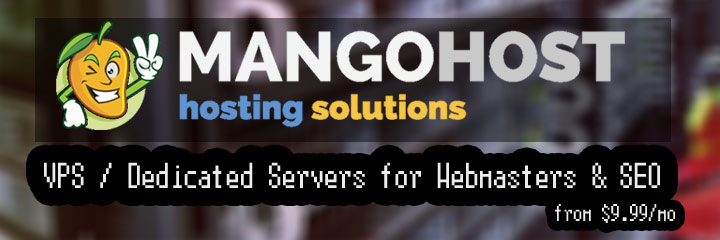
 Get the solution ↓↓↓
Get the solution ↓↓↓
There are multiple ways of passing data between your pages :
Since you are already using $routeProvider, there's no need to navigate usingwindow.location.href, you can use$location.path.
app.config(($routeProvider)=>{
$routeProvider
.when("/" , {templateUrl:"main.php"})
.when("/login" , {templateUrl : "login.php"})
.when("/register" , {templateUrl : "register.php"})
.when("/results" , {templateUrl : "showResults.php"})
.when("/purchase/:cost", {templateUrl:"purchase.php"}) //add the cost as the route param.
.when("/cart" ,{templateUrl:"products.php"});
});
Now, when routing to your purchase page:
$location.path('/purchase/'+cost);
In your purchase controller, inject $routeParams and access the cost as:
app.controller('purchaseController', function($scope,$routeParams) {
$scoope.totalCost = $routeParams.cost;
});
You can use services where you can set the value of cost in one controller and access it in another.
var app = angular.module('yourModule',[]);
app.service("dataService",function(){
var totalCost = "";
setCost: function(cost){
totalCost = cost;
},
getCost: function(){
return totalCost;
}
});
In your product controller, inject dataService and use the setCost Method.
app.controller('productsController', function($scope, dataService) {
dataService.setCost(totalCost);
});
Next, in your PurchaseController, access the value:
app.controller('purchaseController', function($scope, dataService) {
$scope.totalCost = dataService.getCost();
});
This is what I did to make this work using localstorage and ajax :
//-----Checkout------
$("#checkOut").click(()=>{
//get count of products
var numOfProducts = $('.product-columns').length;
var subtotal = parseInt($('#fullSubTotal').text().replace('$',''));
var shipping = parseInt(localStorage.getItem('shipping').replace('$',''));
localStorage.setItem('subtotal', $('#fullSubTotal').text());
var sum = shipping +subtotal;
var total = `$` + `${sum}`;
if(numOfProducts!=0){
//pass total cost
$.ajax({
type:'POST',
data:{totalPurchase:total},
success:()=>{
window.location.href='../php/index.php#!/purchase';
$("#totalOnPurchase").html(`Total: `+`${total}`);
}
});
}else{
alert("Your cart is empty");
}
});
Our community is visited by hundreds of web development professionals every day. Ask your question and get a quick answer for free.
Find the answer in similar questions on our website.
Do you know the answer to this question? Write a quick response to it. With your help, we will make our community stronger.
PHP (from the English Hypertext Preprocessor - hypertext preprocessor) is a scripting programming language for developing web applications. Supported by most hosting providers, it is one of the most popular tools for creating dynamic websites.
The PHP scripting language has gained wide popularity due to its processing speed, simplicity, cross-platform, functionality and distribution of source codes under its own license.
https://www.php.net/
JavaScript is a multi-paradigm language that supports event-driven, functional, and mandatory (including object-oriented and prototype-based) programming types. Originally JavaScript was only used on the client side. JavaScript is now still used as a server-side programming language. To summarize, we can say that JavaScript is the language of the Internet.
https://www.javascript.com/
Angular is one of the most powerful JavaScript frameworks out there. Google uses this platform to develop a Single Page Application (SPA). This development environment is known primarily because it provides developers with a better environment for combining JavaScript with HTML and CSS. More than half a million sites like google.com, youtube.com, etc. use Angular.
https://angular.io/
JQuery is arguably the most popular JavaScript library with so many features for modern development. JQuery is a fast and concise JavaScript library created by John Resig in 2006. It is a cross-platform JavaScript library designed to simplify client-side HTML scripting. Over 19 million websites are currently using jQuery! Companies like WordPress, Facebook, Google, IBM and many more rely on jQuery to provide a kind of web browsing experience.
https://jquery.com/
HTML (English "hyper text markup language" - hypertext markup language) is a special markup language that is used to create sites on the Internet.
Browsers understand html perfectly and can interpret it in an understandable way. In general, any page on the site is html-code, which the browser translates into a user-friendly form. By the way, the code of any page is available to everyone.
https://www.w3.org/html/

Welcome to the Q&A site for web developers. Here you can ask a question about the problem you are facing and get answers from other experts. We have created a user-friendly interface so that you can quickly and free of charge ask a question about a web programming problem. We also invite other experts to join our community and help other members who ask questions. In addition, you can use our search for questions with a solution.
Ask about the real problem you are facing. Describe in detail what you are doing and what you want to achieve.
Our goal is to create a strong community in which everyone will support each other. If you find a question and know the answer to it, help others with your knowledge.